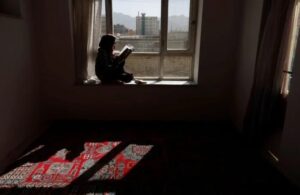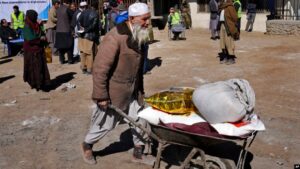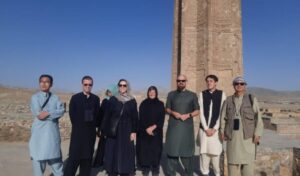HERAT CITY (SW) – A number of victims of last year’s deadly earthquakes in Zindajan district of Herat, who are now living under tents, told Salam Watandar that while they do not have access to health services, the number of “unwanted abortions” among pregnant women in this district has also increased.
They add that apart from abortions, normal births also take place under the tents in a traditional way and in some cases it has caused the death of the mother and her child. The village of “Sanjab” is one of the villages of Zindajan district, which has more than 960 residents. But, the residents of this village say that they do not have access to health services since the earthquake.
30-year-old Amena, a woman whose physical condition is critical due to an unwanted abortion, says that she lost her child without access to health services. She adds: “I was four months pregnant. In this week, they rented a car five or six times and took me to the doctor. Now I am paralyzed, I cannot walk. They hold my shoulder and lift me up in cars. The clinic was far from us and did not take care of me.”
In the same village, Arezo also has a sad story of one of the women here who died together with her child due to lack of access to health services. Arezo says: “A lady among us started bleeding at night and we took her away at night. The river was full of water and we could not cross. Her child was lost and she also died. We can neither go anywhere nor stay like this. What should women who have given birth do at night?”
Sayed Ahmad, another resident of Zindajan district, also has stories about the death of children and other patients due to lack of access to health services. “We do not have access to medicine,” he says. “From here we go to the clinics of Wardaks. There are 29 houses, and here we have some 160 houses, but does not have a clinic. When we go there, they do not take care of us properly. Where they do not take care of the patients at night, we bring our patients and children to the city, they die.”
The Wardaks village is one of the other villages in Zindajan district that has a medical center. But, the health workers of this center also report an increase in the number of unwanted abortions in this village.
Nadia, one of the doctors in the obstetrics and gynecologic department in this village, says: “Most mothers have lost their babies and we had many abortions in the early stages of pregnancy, and every month we had about four to five abortions.”
Meanwhile, the officials at the Herat Public Health Directorate say that they have identified some villages that do not have access to health services, and with the support of aid institutions, they are providing them with health services.
Gholam Mohammad Hanifi, Deputy Director of Public Health of Herat, told Salam Watandar: “In order to establish health facilities in deprived areas, the Ministry of Public Health has a specific policy, according to which the Directorate of Public Health of Herat is obliged to establish a committee to determine the areas. We are going to use the areas not only in earthquake-affected areas, rather, we have identified in all the districts of Herat province so in case of aid organizations willing to cooperate and provide health services to the needy people, these areas will be referred to them and made available to women.
It should be mentioned that as a result of the catastrophic earthquake in Zindajan district of Herat last year, more than 1000 people died and many houses were destroyed in this province. Most of the victims of this earthquake are spending their days and nights under tents.
According to the residents of these villages, there has been a significant increase in unwanted abortions in these villages since the earthquake.






